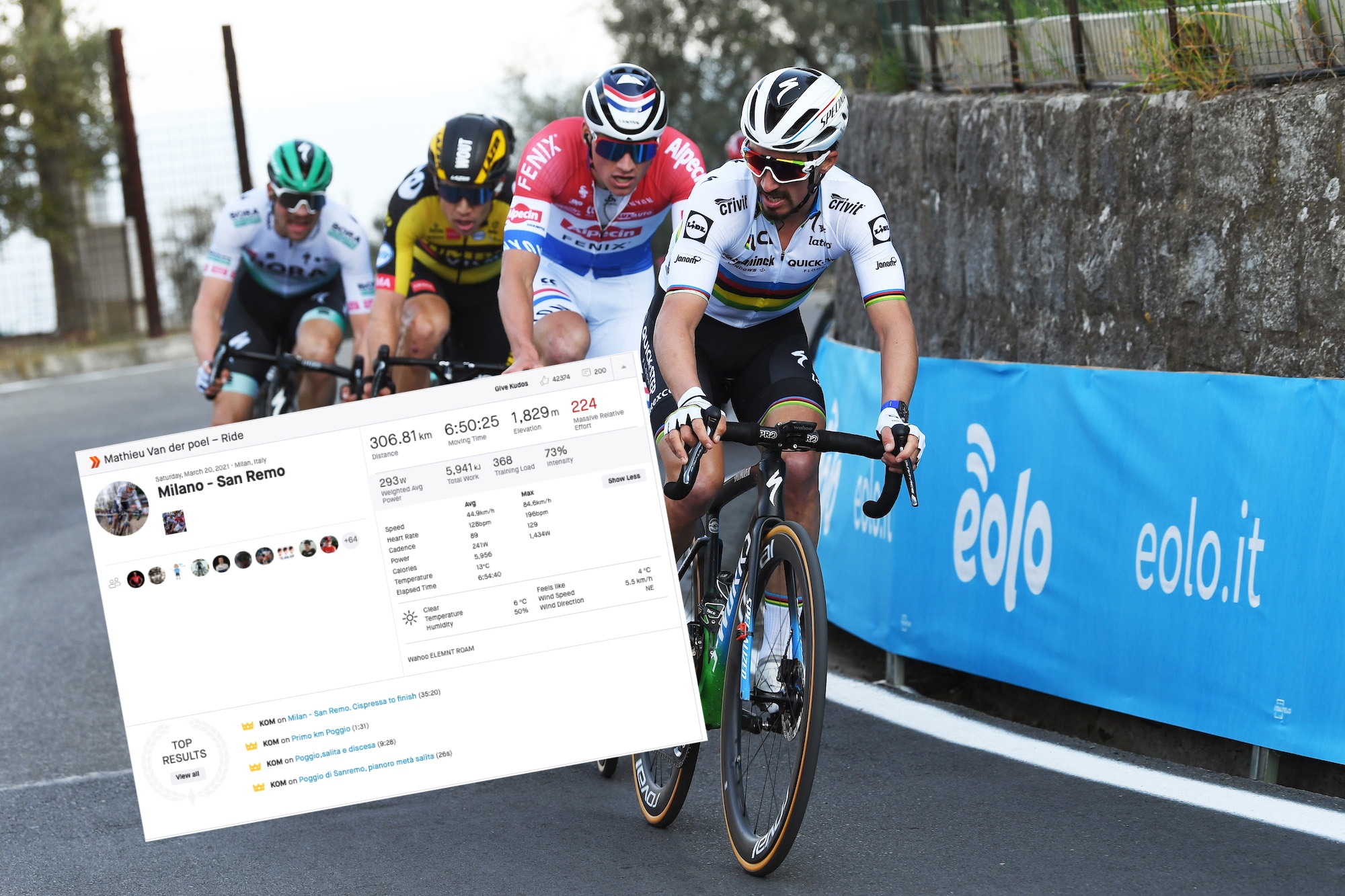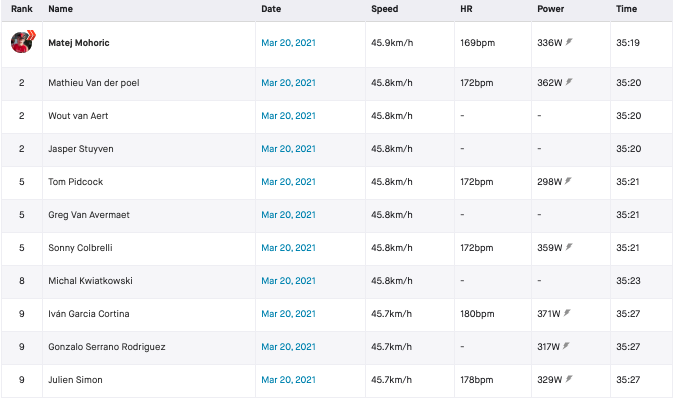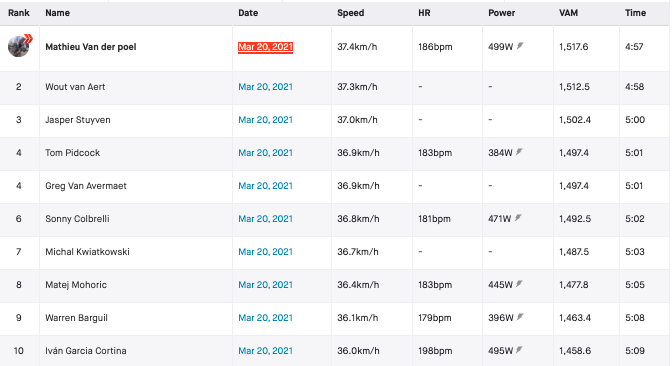Strava data reveals rapid ascent of the Poggio in Milan-San Remo 2021
Mathieu van der Poel and Tom Pidcock have shared their power numbers from the race


The latest race content, interviews, features, reviews and expert buying guides, direct to your inbox!
You are now subscribed
Your newsletter sign-up was successful
Strava data has revealed the power behind a rapid ascent of the Poggio in Milan-San Remo 2021.
This year’s edition of the Italian Monument came down to an unpredictable finish, as a sizeable group crested the Poggio together before Jasper Stuyven (Trek-Segafredo) attacked solo in the final 2km to take the victory.
Stuyven put out some huge power to maintain his gap over the chasing group and to sprint to the line and hold off Caleb Ewan (Lotto-Soudal) at the line, but there were also some remarkable performances from those who finished behind.
Here’s a look at the Strava data from this year’s ‘La Primavera’:
Not all riders opt to share their power data online after big races, as some feel keeping the numbers secret offers them an advantage over their rivals, but luckily some riders are will to share their numbers.
Mathieu van der Poel (Alpecin-Fenix) has shared his data from Milan-San Remo after finishing fifth on the Via Roma on Saturday.
During his six hour and 50 minute ride over the 299km race, Van der Poel averaged 241 watts.
The latest race content, interviews, features, reviews and expert buying guides, direct to your inbox!
As usual, the 2021 Milan-San Remo sparked into life on the slopes of the Cipressa around 26km from the finish, with Van der Poel holding 362w for the 35 minutes from the foot of that climb all the way to the line.
Then onto the Poggio, the decisive final climb into San Remo, the Dutchman then held 497w for 5 minutes and 42 seconds during the ascent of the 3.6km-long road.

Finally as the race hit the final straight, Van der Poel launched a characteristically huge sprint, averaging over 1,000w for 27 seconds, hitting a maximum power of 1,400w.
Britain’s Tom Pidcock, riding his first ever Milan-San Remo, also shared his power data from the day’s racing, as he averaged 185w for the duration.
For the final 27km of the race, the Ineos Grenadiers rider averaged 298w, including a 384w effort for five minutes on the Poggio.

Pidcock then hit 1,100w in the final sprint to finish 15th.
Stuyven’s effort in the final was very different to the others after he escaped at the bottom of the Poggio, 2.5km from the finish.
The Belgian held 515w for the final two minutes and 47 seconds of the race, then hitting 1,545w in his desperate sprint for the line as the chasing group surged behind him.
Despite another near miss from Caleb Ewan, Stuyven held on to take his first Monument victory.
This year’s race saw the peloton crest the Cipressa in a rapid time - the fastest since 2017, according to Climbing Records.
The 80-rider peloton climbed the Poggio in a time of 10-02, with an average speed of 34km/h, compared to 10-30 last season.
That time is the fastest ascent since the time of 9-50 set in 2017.
But modern times on the Cipressa are considerably slower than the record of 9-19, set in 1996 by Gabriele Colombo, who won the race, and Alexander Gontchenkov.
>>> Paris-Roubaix 2021 unlikely to go ahead due to coronavirus situation in the region
On the Poggio, the strong attacking group that included Van der Poel, Pidcock, Stuyven and others, climbed in 5-51, the fastest time since 2019 when the Julian Alaphilippe group reached the top in 5-50.
The record on the Poggio was set by Maurizio Fondriest and Laurent Jalabert back in 1995, when the pair climbed in 5-46 as Jalabert took victory.
Alex Ballinger is editor of BikeBiz magazine, the leading publication for the UK cycle industry, and is the former digital news editor for CyclingWeekly.com. After gaining experience in local newsrooms, national newspapers and in digital journalism, Alex found his calling in cycling, first as a reporter, then as news editor responsible for Cycling Weekly's online news output, and now as the editor of BikeBiz. Since pro cycling first captured his heart during the 2010 Tour de France (specifically the Contador-Schleck battle) Alex covered three Tours de France, multiple editions of the Tour of Britain, and the World Championships, while both writing and video presenting for Cycling Weekly. He also specialises in fitness writing, often throwing himself into the deep end to help readers improve their own power numbers. Away from the desk, Alex can be found racing time trials, riding BMX and mountain bikes, or exploring off-road on his gravel bike. He’s also an avid gamer, and can usually be found buried in an eclectic selection of books.
